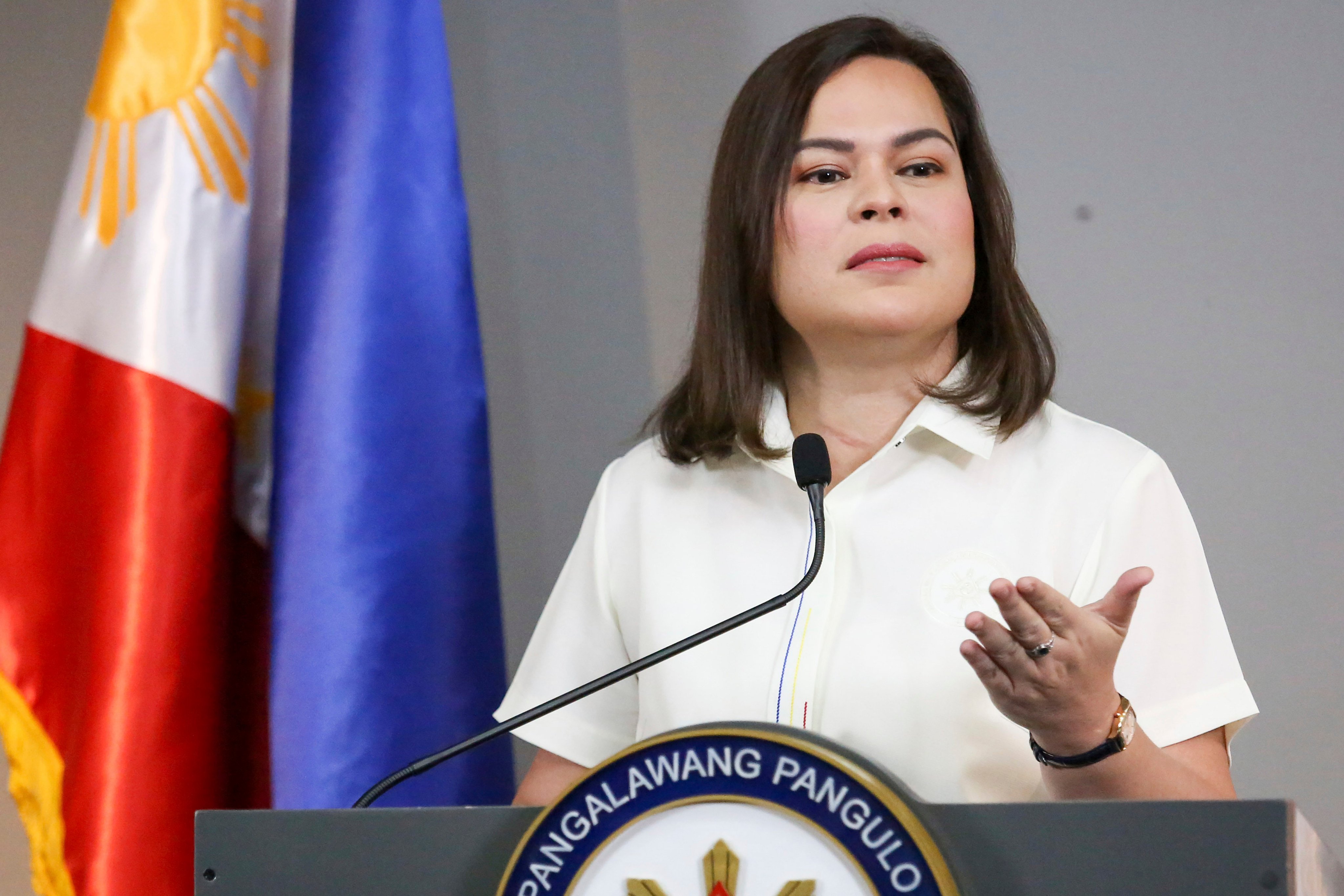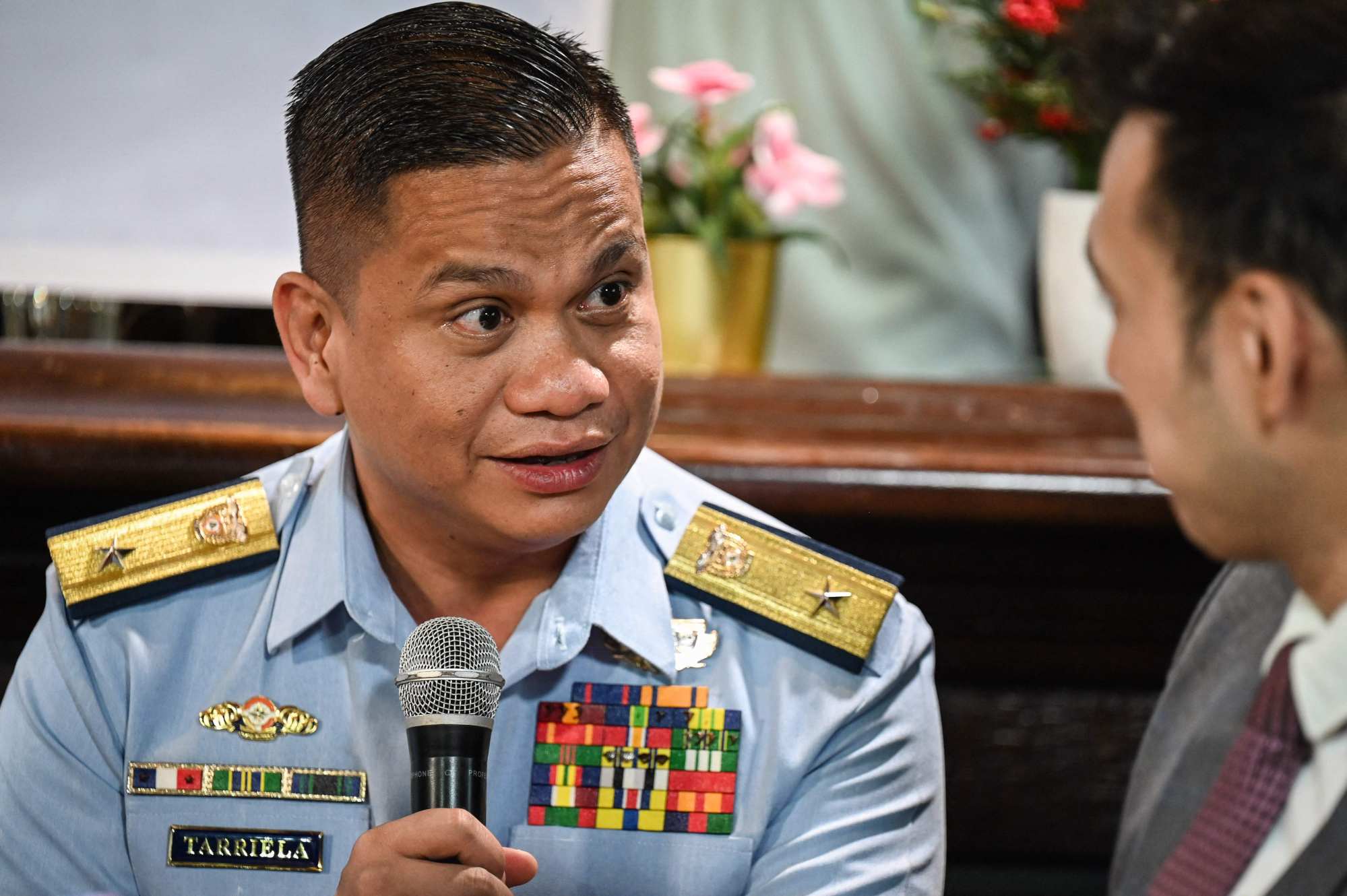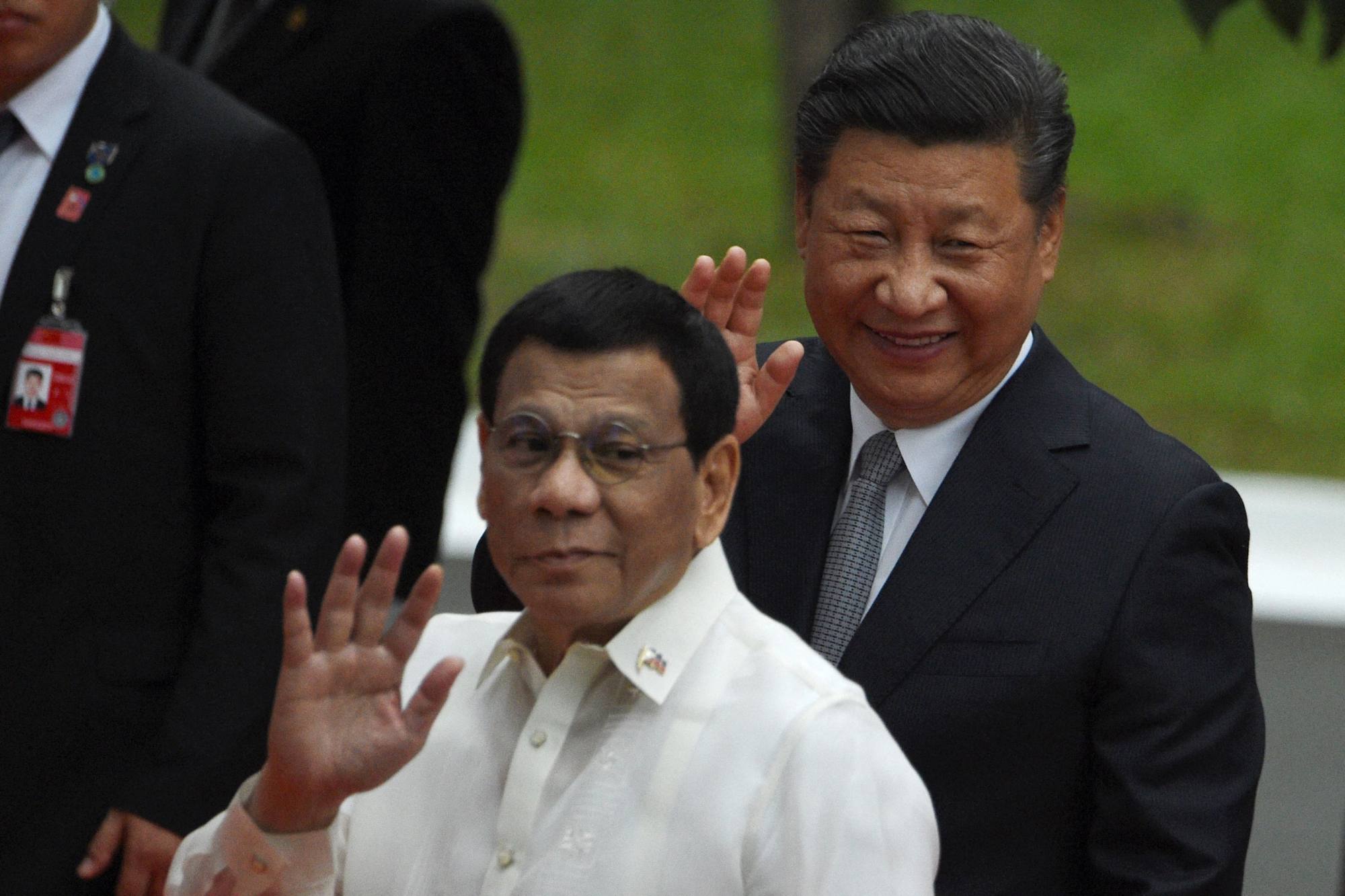How the next Philippine president could reshape its South China Sea policy
A coastguard official’s jab at former president Duterte’s ‘jet ski’ pledge has revived debate on Manila’s long-term maritime strategy

With Philippine President Ferdinand Marcos Jnr about halfway through his six-year term, questions are growing over whether his successor will uphold his firmer stance on the South China Sea or, as one senior official has warned, retreat to the symbolic “jet ski” posturing and softer policies seen under his predecessor, Rodrigo Duterte.
Last month’s midterm elections delivered a split Senate, with Marcos-aligned candidates winning five of the 12 contested seats and Duterte allies clinching the other five – highlighting the deepening rivalry between the two dominant political clans and setting the stage for a contentious 2028 presidential election.
The remaining two seats were won by opposition candidates not aligned with either Marcos or Duterte.
Commodore Jay Tarriela, the Philippine Coast Guard’s spokesman for the West Philippine Sea, warned over the weekend that Manila must guard against electing a leader in 2028 who would once again “ride a jet ski” on empty promises rather than assert the country’s sovereign rights.
Speaking at a public forum last week, Tarriela credited the Marcos administration with restoring public confidence in the country’s claims to the West Philippine Sea – the term Manila uses for the portion of the South China Sea within its exclusive economic zone. He urged vigilance to ensure that momentum is not lost after Marcos leaves office.

“What if it’s 2028 already? It’s the end of President Marcos Jnr’s term. How can we assure that our fight in the West Philippine Sea will continue?” Tarriela asked.
“This is the reason why we need to reach out, to increase awareness more to ensure that the president in 2028 is not somebody who will set aside our fight in the West Philippine Sea and say ‘It has nothing to do with the Filipinos and there will be just war’ and will ride a jet ski.”
The “jet ski” jibe was a pointed reference to former president Rodrigo Duterte’s infamous campaign promise in 2016, when he vowed to personally plant the Philippine flag on disputed reefs in the South China Sea.
“I will ask the navy to bring me to the nearest boundary in the Spratlys, in Scarborough. I will go down and ride a jet ski, holding a Philippine flag, and I will go to their airport and plant it there,” Duterte declared during a televised presidential debate.
He later dismissed the remark as a joke, but for many Filipinos, it came to symbolise the stark gap between his nationalist rhetoric and his actual foreign policy.
Once in office, Duterte took a markedly conciliatory approach to China. Following the Philippines’ landmark legal victory at The Hague in 2016 – which rejected Beijing’s sweeping claims to nearly the entire South China Sea – he chose not to aggressively assert the ruling. Instead, he restored diplomatic and economic ties with Beijing, describing the tribunal decision as “a piece of paper” that could be set aside in favour of dialogue.
Duterte also repeatedly questioned the value of the Philippines’ alliance with the United States, calling for the removal of American troops from the country and threatening to terminate defence pacts such as the visiting forces agreement.
Although these moves were often walked back or delayed, they signalled a broader attempt to reorient Philippine foreign policy away from Washington and towards closer engagement with China – an approach he described as pragmatic and rooted in economic self-interest.

Critics, however, argued that this stance weakened Manila’s ability to respond to Chinese incursions and eroded the country’s leverage in maritime disputes.
By contrast, Marcos has adopted a more assertive posture, stepping up patrols in contested waters, publicising encounters with Chinese vessels, and deepening defence cooperation with allies such as the United States and Japan – a shift that has drawn both praise and resistance at home and abroad.
Succession stakes
Now, as the dust from the midterm elections settles and attention shifts to the 2028 horizon, Duterte’s daughter, Vice-President Sara Duterte-Carpio, has emerged as the leading presidential contender – despite facing controversies including a pending Senate impeachment trial over allegations of budget mismanagement and threats against top officials following her impeachment by the House.
A WR Numero poll conducted from March 31 to April 7 found 30.2 per cent of respondents would back her if the election were held today – making her the clear front runner, ahead of Senator Raffy Tulfo at 17.9 per cent. Marcos is constitutionally barred from seeking a second term, opening the field for a new leader in 2028.
For many analysts, the key question is not whether Duterte-Carpio will run, but how she would approach the West Philippine Sea (WPS) and China – issues on which she has remained notably silent even as tensions escalate.
Danielito Jimenez, a lawyer and political analyst who founded the advocacy platform The Pinoy Street Lawyer Official, said a Duterte-aligned presidency could take a more pragmatic approach than the elder Duterte’s overt accommodation of Beijing, balancing economic cooperation with a push for regional diplomacy.
He suggested that domestic unease over issues such as abuses linked to Philippine offshore gaming operators (Pogos) – offshore gambling firms linked to organised crime – could pressure the next administration to appear more assertive on sovereignty issues. In this context, Duterte-Carpio “may – or rather should – push” for deeper cooperation with the Association of Southeast Asian Nations (Asean) to support “an alternative diplomatic framework for resolution”.
Such a policy shift, he said, could “shape global perceptions” and “ultimately reaffirm our claim on the WPS”. But he cautioned that its durability would depend on how well current policies were entrenched in law.
“If it’s through enacted legislation, no administration can simply ignore or repeal those measures without political cost,” Jimenez said. “But if it’s just executive policy, the next president can always reverse it.”
Edmund Tayao, a political-science professor at San Beda University’s Graduate School of Law, offered a more sceptical view. He said that if Duterte-Carpio or another close ally of the former president were to assume power, it could mean a return to Beijing-friendly policies.
“If the Duterte camp wins,” he said, “no amount of long-term planning or strategy will matter. We’ve seen it before, and we’ll see the same if she wins. China will get what it wants.”
This prospect raises questions about the fate of Marcos’ strategy for the West Philippine Sea, which his administration is seeking to shield from political reversals.
National Security Adviser Eduardo Año said last month the government was crafting a long-term maritime strategy to counter “China’s baseless, excessive and expansive territorial claims” and ensure policy continuity beyond 2028.
“The Philippines recognises that challenges in the South China Sea are unlikely to diminish any time soon,” Año said, framing the effort as a response to mounting regional flashpoints and shifting geopolitical tensions.
Jimenez stressed that while leadership might change, the pursuit of peaceful resolution must remain a constant. “It’s not just about who sits in Malacañang,” he said, referring to the presidential palace. “Asean must take collective responsibility for keeping that diplomatic path open.”